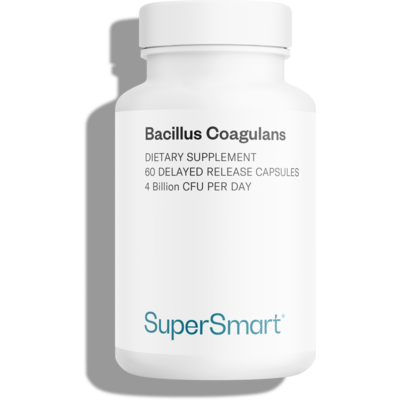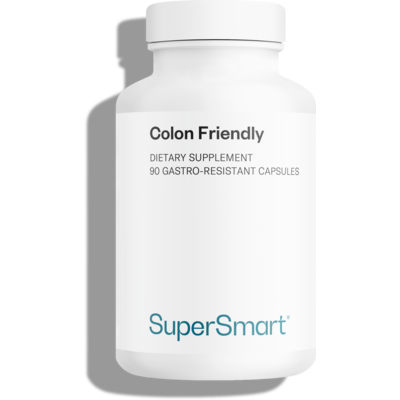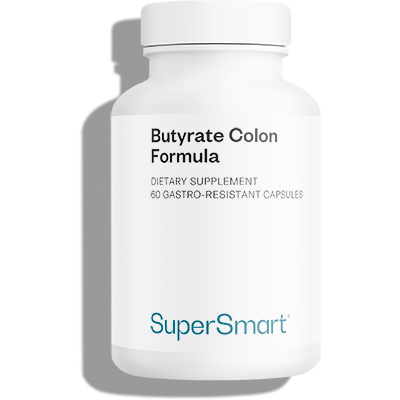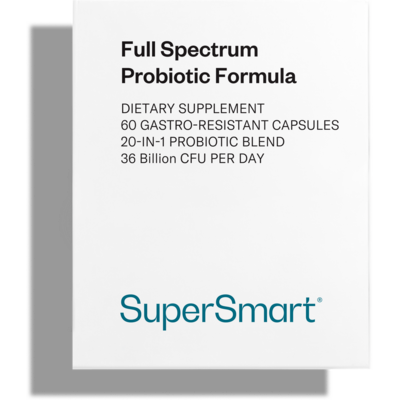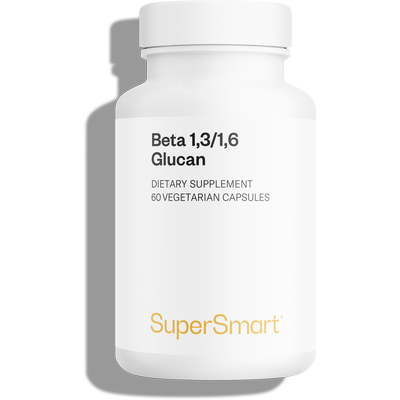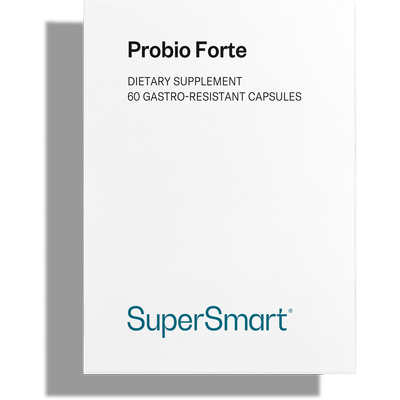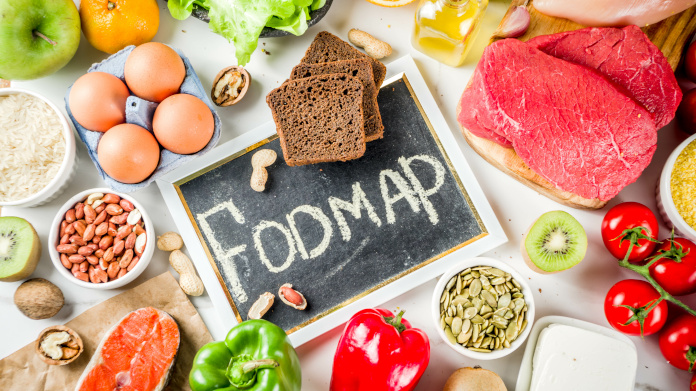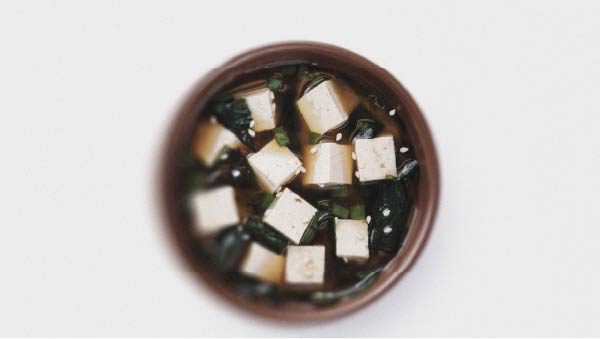Can probiotics really soothe an irritable bowel?
By helping to support the balance of the intestinal microbiota, could certain probiotics have an impact on the quality of life of irritable bowel sufferers? Here's what the research says.

What is irritable bowel syndrome (IBS)?
Irritable bowel syndrome (IBS), also known as functional colopathy, is a common chronic disorder of the digestive system.
It is characterised by recurrent stomach aches or abdominal discomfort, associated with intestinal transit disorders: diarrhoea, constipation, or alternating periods of both.
Unlike chronic inflammatory bowel disease (IBD), IBS does not cause visible damage to the intestinal mucosa.
This can make diagnosis difficult and frustrating for patients, who may feel misunderstood and misjudged.
The symptoms of IBS vary from person to person, but they all have one thing in common: a major impact on quality of life.
Frequent bloating, a feeling of disturbed digestion, persistent discomfort, fatigue, and food anxiety can quickly interfere with the daily, social, and even professional lives of sufferers (1).
Microbiota balance and IBS: what the science says
Composition of the microbiota and irritable bowel syndrome
The intestinal microbiota represents all the living microorganisms that inhabit the intestines.
According to current scientific knowledge, it fulfils a variety of functions and contributes to several physiological processes, particularly those related to digestion and the immune system.
Clinical studies have revealed an alteration in the microbial balance of the intestines (dysbiosis) in people suffering from IBS.
Research suggests that the microbiota may contribute to the onset or worsening of digestive symptoms associated with IBS (2).
Maintaining or restoring a healthy balance in the microbiota could therefore be a promising way to better manage the condition.
Probiotics, microbiota balance and IBS
According to the WHO, probiotics are live microorganisms which, when administered in adequate quantities, confer a health benefit on the host.
Several clinical studies have therefore examined the effect of probiotics (which make up the intestinal microbiota) on digestive disorders linked to IBS.
For example, one clinical review concluded that the use of certain probiotic species would be effective in relieving abdominal pain due to flatulence (particularly its frequency and intensity), bloating, digestive disorders and intestinal urgency.
The same review notes that these probiotics have also been shown to be beneficial in patients suffering from IBS, slowing down intestinal transit, reducing the average number of stools per day, improving stool consistency and, above all, improving patients' quality of life (3).
Biologically speaking, probiotics may act through several complementary mechanisms on these parameters (4):
- competing with pathogenic bacteria, thereby limiting their proliferation
- strengthening the intestinal barrier, which prevents inflammatory substances from penetrating the mucosa
- modulating the local immune system, thereby reducing the chronic inflammation often associated with IBS
- producing beneficial metabolites such as short-chain fatty acids (butyrate), which are essential for the proper functioning of intestinal cells
These mechanisms could help restore intestinal balance, promoting better digestive comfort.
A study proposes a classification of species showing potential efficacy
Probiotics are divided into different large 'families': lactobacilli, bifidobacteria, lactococci, streptococci and Saccharomyces-type yeasts.
They do not all have the same characteristics and therefore do not have the same effects when present in sufficient quantities in the colon.
This is why a meta-analysis looked at the species likely to show potential efficacy in acting specifically on manifestations of irritable bowel syndrome (5).
According to this study, the most interesting species in this context include certain types of:
- Bifidobacterium longum, which appears to reduce the frequency of bowel movements and improve psychological well-being in the context of IBS
![]() Discover the highly concentrated Bifidobacterium Longum food supplement for your intestines.
Discover the highly concentrated Bifidobacterium Longum food supplement for your intestines.
- Bacillus coagulans, which appears to act on bloating and stool frequency
![]() Discover the Bacillus Coagulans Probiotic food supplement, which survives the hostile conditions of the digestive system to reach the intestines.
Discover the Bacillus Coagulans Probiotic food supplement, which survives the hostile conditions of the digestive system to reach the intestines.
- Saccharomyces cerevisiae, which appears to act on abdominal pain, bloating and the frequency and consistency of stools
![]() Discover Beta 1.3/1.6 Glucan, a Saccharomyces cerevisiae extract standardised to 70% beta-(1,3/1,6)-glucans.
Discover Beta 1.3/1.6 Glucan, a Saccharomyces cerevisiae extract standardised to 70% beta-(1,3/1,6)-glucans.
- Lactobacillus acidophilus, which appears to reduce abdominal pain scores and psychological well-being in IBS
![]() Discover the Probio Forte food supplement , which contains several carefully selected probiotic species, including Lactobacillus acidophilus.
Discover the Probio Forte food supplement , which contains several carefully selected probiotic species, including Lactobacillus acidophilus.
- Bifidobacterium animalis subsp. lactis, which appears to offer an overall improvement in IBS
![]() Discover the Full Spectrum Probiotic food supplement, which contains 20 species of synergistic probiotics, including Bifidobacterium animalis lactis.
Discover the Full Spectrum Probiotic food supplement, which contains 20 species of synergistic probiotics, including Bifidobacterium animalis lactis.
Some formulas combine several species of probiotics that contribute to the balance of the intestinal microbiota to offer a targeted effect on the colon.
![]() Discover the Colon Friendly food supplement, which includes 4 carefully selected species of microorganisms: Saccharomyces cerevisiae, Bifidobacterium longum infantis, Bifidobacterium longum longum and Lactobacillus acidophilus.
Discover the Colon Friendly food supplement, which includes 4 carefully selected species of microorganisms: Saccharomyces cerevisiae, Bifidobacterium longum infantis, Bifidobacterium longum longum and Lactobacillus acidophilus.
Apart from probiotics, other ingredients can also have interesting effects on patients suffering from irritable bowel syndrome.
For example, blond psyllium (Plantago ovata) is a soluble fibre that may be useful for regulating transit and softening stools by attracting water.
What's more, when it comes into contact with water, its mucilage forms a viscous gel that lines the intestinal walls and 'lubricates' them (6).
It is therefore often recommended in cases of IBS.
![]() Discover Psyllium Seed Husk, a food supplement made from psyllium husks (Plantago ovata) rich in soluble fibre.
Discover Psyllium Seed Husk, a food supplement made from psyllium husks (Plantago ovata) rich in soluble fibre.
Butyrate is a short-chain fatty acid produced by certain bacteria in the intestinal microbiota.
In particular, it helps to strengthen the intestinal barrier by tightening the junctions between the cells that make it up. It is also thought to help regulate inflammation and the balance of the microbiota (7).
All these parameters are of particular interest to IBS sufferers.
![]() Discover the Butyrate Colon Formula food supplement, which contains an optimised form of butyrate (tributyrin) as well as other compounds studied in the context of IBS.
Discover the Butyrate Colon Formula food supplement, which contains an optimised form of butyrate (tributyrin) as well as other compounds studied in the context of IBS.
SUPERSMART ADVICE
References
- Ford AC, Sperber AD, Corsetti M, Camilleri M. Irritable bowel syndrome. 2020 Nov 21;396(10263):1675-1688. doi: 10.1016/S0140-6736(20)31548-8. Epub 2020 Oct 10. PMID: 33049223.
- Rodiño-Janeiro BK, Vicario M, Alonso-Cotoner C, Pascua-García R, Santos J. A Review of Microbiota and Irritable Bowel Syndrome: Future in Therapies. Adv Ther. 2018 Mar;35(3):289-310. doi: 10.1007/s12325-018-0673-5. Epub 2018 Mar 1. PMID: 29498019; PMCID: PMC5859043.
- Satish Kumar L, Pugalenthi LS, Ahmad M, Reddy S, Barkhane Z, Elmadi J. Probiotics in Irritable Bowel Syndrome: A Review of Their Therapeutic Role. 2022 Apr 18;14(4):e24240. doi: 10.7759/cureus.24240. PMID: 35602835; PMCID: PMC9116469.
- Latif A, Shehzad A, Niazi S, Zahid A, Ashraf W, Iqbal MW, Rehman A, Riaz T, Aadil RM, Khan IM, Özogul F, Rocha JM, Esatbeyoglu T, Korma SA. Probiotics: mechanism of action, health benefits and their application in food industries. Front Microbiol. 2023 Aug 17;14:1216674. doi: 10.3389/fmicb.2023.1216674. Erratum in: Front Microbiol. 2024 Feb 14;15:1378225. doi: 10.3389/fmicb.2024.1378225. PMID: 37664108; PMCID: PMC10470842.
- Xie, P.; Luo, M.; Deng, X.; Fan, J.; Xiong, L. Outcome-Specific Efficacy of Different Probiotic Strains and Mixtures in Irritable Bowel Syndrome: A Systematic Review and Network Meta-Analysis. Nutrients 2023, 15, 3856. https://doi.org/10.3390/nu15173856
- Keller E, Laxalde J, Tranier N, Belmar von Kretschmann P, Jackson A, van Hoek I. Psyllium husk powder increases defecation frequency and faecal score, bulk and moisture in healthy cats. J Feline Med Surg. 2024 Apr;26(4):1098612X241234151. doi: 10.1177/1098612X241234151. PMID: 38635357; PMCID: PMC11103317.
- Peng L, Li ZR, Green RS, Holzman IR, Lin J. Butyrate enhances the intestinal barrier by facilitating tight junction assembly via activation of AMP-activated protein kinase in Caco-2 cell monolayers. J Nutr. 2009 Sep;139(9):1619-25. doi: 10.3945/jn.109.104638. Epub 2009 Jul 22. PMID: 19625695; PMCID: PMC2728689.
Keywords
2 Days
Order was shipped on time and packaged…Wonderful Jobs!
Order was shipped on time and packaged excellently.
DMHoge
8 Days
great products and prices
great products and prices
Marie
14 Days
Easy to navigate site
Easy to navigate site, had what I was searching for, good price. easy order-check out
James Tucker
20 Days
My skin is clearing up nicely!
Pretty good for my skin so far.
Christian
22 Days
The new packaging is excellent
The new packaging is excellent - finally! No more squashed boxes and torn envelopes.
GORAN
23 Days
Great Product
Great Product
Larry Garrett
28 Days
Quick shipping
Quick shipping; good price. No issues!
Mary McCarty
29 Days
Thr product is very good and is helping…
Thr product is very good and is helping me on my health. Then is always on time
LUGO Luz
32 Days
Buying was fine
Buying was fine. I had problems with the website not recognizing my login info, and had to call to get it fixed. Other than that, everything was good.
David S. Clark
32 Days
Your super maca and super ginseng are…phenomenal
Your super maca and super ginseng are phenomenal supplements that compliment each other when taking them together. Fantastic feeling of well-being and lots of mid day energy without the crash.
Keith Mason
35 Days
I have had amazing results with every…
I have had amazing results with every supplement I've purchased. I am extremely satisfied with this company
kirstin Torres
35 Days
Fine products
Fine products . They are on the leading edge of online supplements. The only issue -so far-is they sometime run out of subscription items.
Jason Argos
37 Days
The ordering process is very user…
The ordering process is very user friendly and the products always come in a timely manner.
CARTER Rhonda
38 Days
The price for Dr
The price for Dr. Pero's AC-11 is reasonable and in line with his views. (my former colleague). Keep it pure.
CAMPBELL Clayton
41 Days
Right on every time.
Right on every time.
Arthur Nicholas


